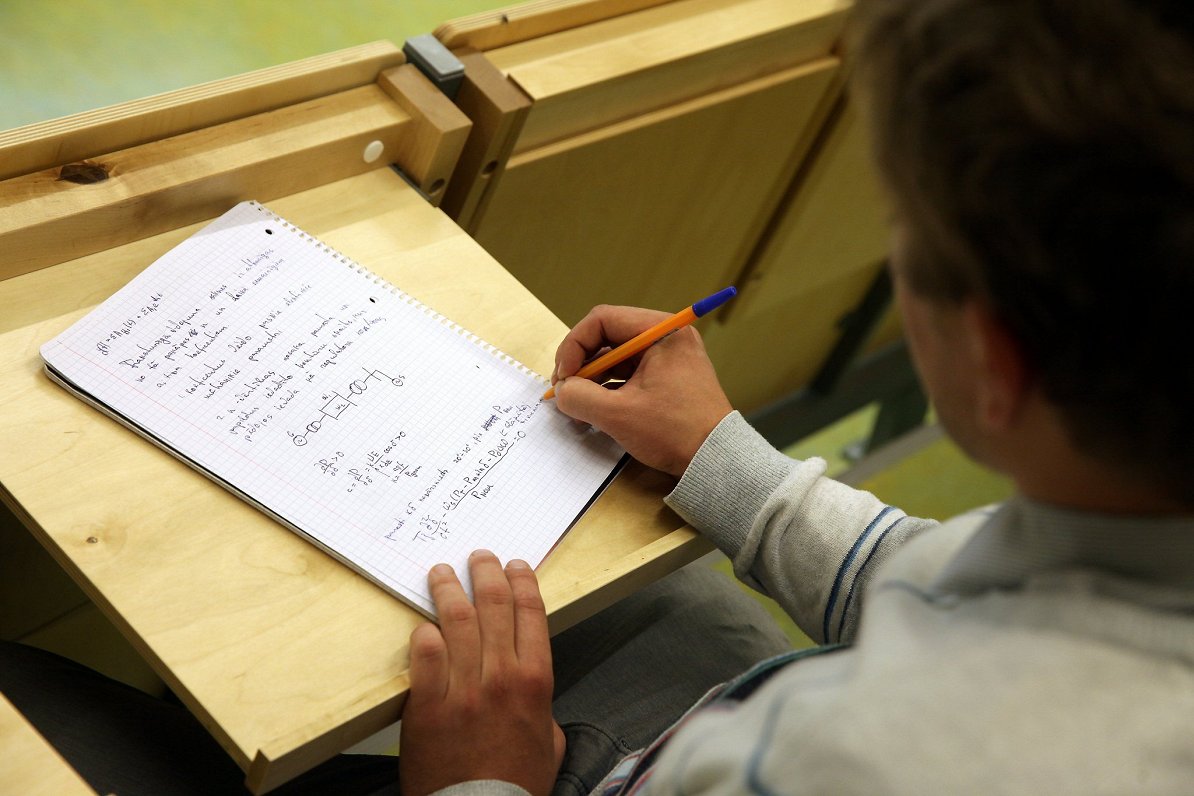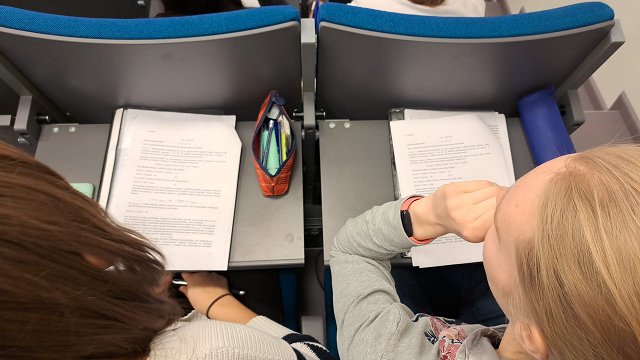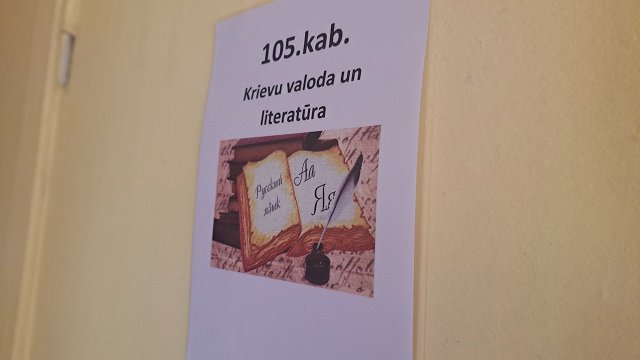I had no idea what to expect from the Latvian state school system when I first landed at Riga Airport last August. I had thrown myself head-first into the challenge of leaving behind my safe bubble of friends and family in my home country of Denmark, to go on an adventure to a foreign country of which I had no real prior knowledge – in the middle of a global pandemic.
Scary, indeed, but also magnificently exciting. The idea of having the opportunity to dive deep into a new culture – to live, breathe and engage in society alongside my soon-to-be friends, and getting a unique first- hand perspective on a culture very different from my own. Though this did not come without its share of obstacles.
At 16 years old, I was now on my own in a strange and unknown country. Or so I thought. It quickly turned out that my Latvian peers were warm, welcoming people, who were just as curious to get to know about my culture – and how to pronounce all the popular Danish swear words – as I was to learn about theirs.
On September 1st, the first day in my new 11th grade class, I was shocked by the apparent formality of my peers. Classmates of mine had shown up in formal clothes – white shirts, dresses – and with flowers for the teacher; a sharp contrast from the yawns and indolent attitudes that I am used to from my previous first days of school back home. While it turned out that this, luckily, was not the everyday school outfit, this experience set the tone for what would be a school environment that is a bit more stringent and conservative than what I’m used to in my home country.
The first point where I needed to learn to adapt was when addressing teachers. While having to say “skolotāj(a)” – the Latvian word for ‘teacher’ – instead of using their first name when addressing them did not prove challenging to me, I saw it as yet another example of the formality in Latvian society. A classmate of mine had a hard time believing that we Danes address our teachers by their first names, and have done so for decades, citing a presumptive ‘lack of simple respect’ for their authority.
As I have grown up with simply using first names and been used to it from birth, I have never really questioned it until now. In Denmark, the only time where it is culturally appropriate to use formal pronouns is when addressing the royal family; but I understand where my classmate’s amazement was coming from. Judging from my social encounters, I believe that Latvian cultural practice builds on more traditional and respectful manners than its Danish counterpart.
I was surprised when my classmates suddenly rose from their chairs when one of our teachers entered the classroom. In Denmark, we would view such action as an antique remnant from our grandparents’ time in school. However, in Latvia, it seems to be common practice.
Having conducted most of my education since third grade on a computer, it was quite a challenge for me to switch to a school week with the only use of computers being during the two designated lessons per week of informatics. The switch to online, remote learning in early October, however, quickly reinstated my excessive daily use of the PC.
With the sudden transfer to remote learning, I have unfortunately lost much of the interaction with Latvian society I previously had. I think it is not controversial to say that conference calls where we all hide behind small, coloured icons with our initials are inferior to actual in-person lectures.
It seems to me that the Latvian education system is mostly built on the idea of listening and memorising, whereas the Danish system is more focused on interactive, pedagogical, and analytical teaching methods. On several occasions in Latvia, it has occurred that a teacher has gone into a two-hour monologue where all we students had to do was to note as much as possible from their 50-slide PowerPoint presentation.
While I think that the Danish teaching philosophy adheres more to my preferences, there are undoubtedly lessons we Danes can learn from Latvia: here, the authority of the teacher seems more clear- cut than what I am used to from Denmark, and I would think that is generally a good thing.
The teacher needs to establish and maintain a level of respect in order to teach properly – something that is seemingly easier in Latvia’s school system. Regardless of what happens with the Covid situation, my – albeit short – experience in Latvia’s school system is not something I shall forget any time soon.

































